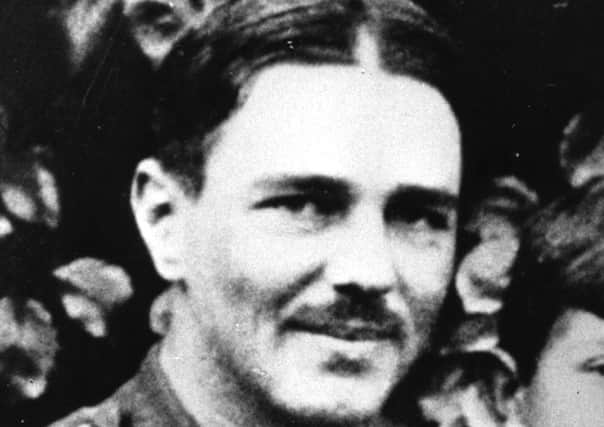War poet's time in Scotland to be marked in centenary year


Now the centenary of Wilfred Owen’s stay in Edinburgh in 1917 is to be commemorated in a series of events taking place in the city this summer and autumn.
Owen, who enlisted in the army was sent home from the Western Front in 1917 suffering from shell-shock and sent to Craiglockhart War Hospital in Edinburgh to recuperate.
Advertisement
Hide AdAdvertisement
Hide AdWhile there Owen, who had begun writing poetry, met and was greatly influenced by poet Siegfried Sassoon who already had a high standing as a published poet and shared Owen’s view of the futility of war.
While in Edinburgh Owen wrote the first draft of Dulce et Decorum Est and Anthem for Doomed Youth and also taught at Tynecastle High school as part of his recovery process.
Events organised by Wilfred Owen’s Edinburgh 1917-2017, a committee consisting of organisations such as the Wilfred Owen Society, Poppyscotland and the Scottish Poetry Library. begin with a re-enactment of Owen’s arrival at Waverley railway station on 26 June 1917. The re-enactor will be accompanied by Peter Owen, the poet’s nephew.
After “Owen’s” arrival in the city First World War re-enactors will be positioned along Princes Street collecting money for Poppyscotland and handing out copies of Owen’s poem Six o’clock in Princes Street.
Further events include the premiere of a poem written about Owen by Jackie Kay, the National Poet for Scotland, a special screening on 17 August at the Edinburgh Filmhouse of Regeneration, the 1977 adaptation of Pat Baker’s novel about Sassoon meeting Owen and doctor William Rivers at Craiglockhart, and a recreation of a walk taken by Owen in the Pentland Hills.
Owen returned to the Western Front and in October 1918 was awarded the Military Cross. He was killed the following month, aged 25.
Colin Waters, communications manager at the Scottish Poetry Library, said that Owen’s work had been “pivotal” in defining the Great War.
“Owen must be one of the few poets people who don’t really read poetry know about.
“The line from Dulce et Decorum Est where he describes the Latin sentiment that it is right to die for one’s country as being “The old Lie” has been a slogan of the peace movement for decades.”